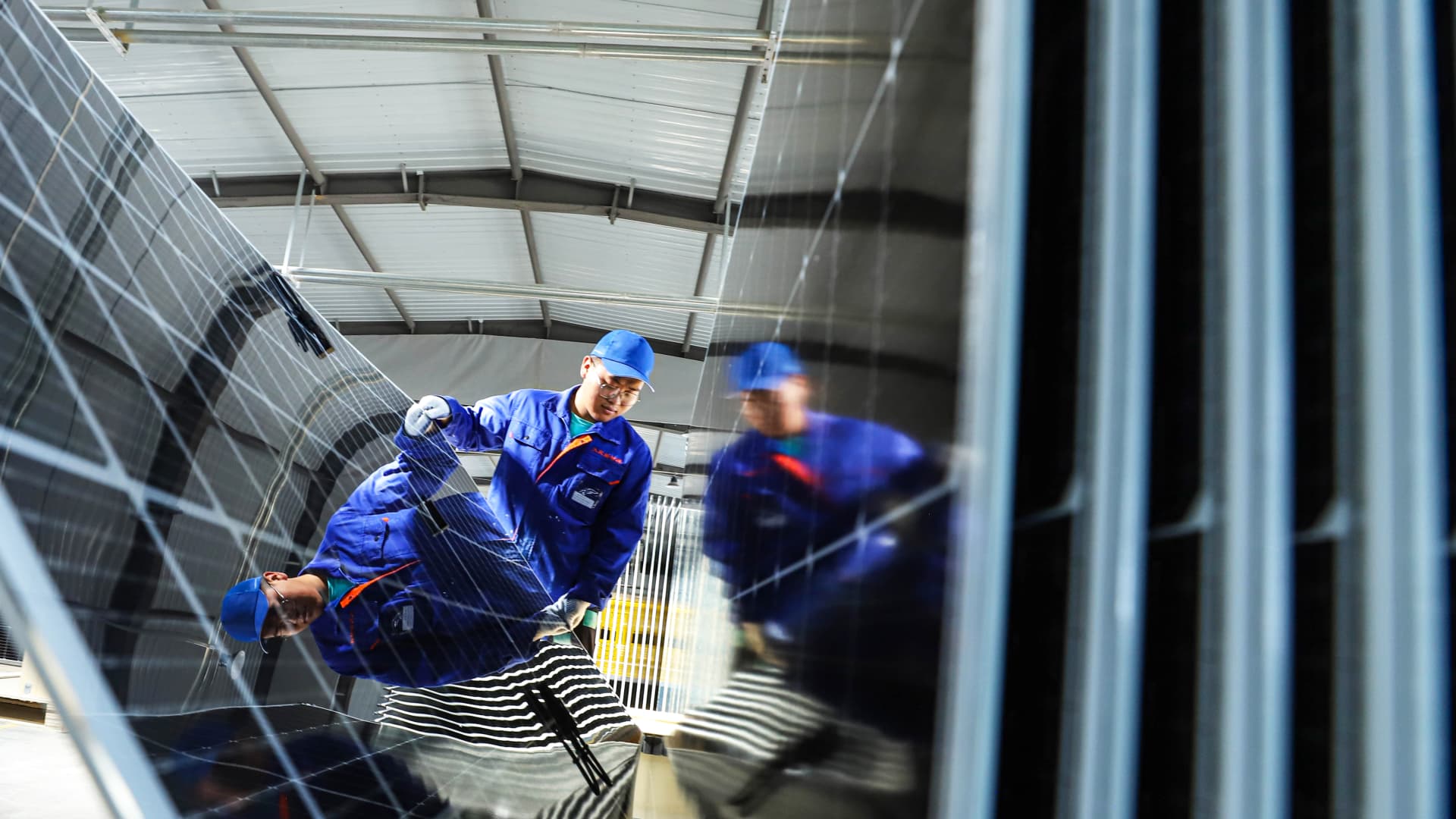- First Solar and six other manufacturers allege that Cambodia, Malaysia, Thailand and Vietnam are flooding the U.S. market with cheap solar cells that threaten the domestic industry.
- The manufacturers are requesting that the Commerce Department impose tariffs on solar cell imports from the four countries as a remedy.
- They allege China is trying to circumvent tariffs by shifting manufacturing to the four countries.
- Several solar and renewable energy trade associations said they oppose tariffs, arguing they would create market volatility in the U.S.
A coalition of U.S. solar manufacturers petitioned the federal government on Wednesday to impose tariffs on imports from four Southeast Asian nations, alleging that the countries are flooding the U.S. market with cheap products that threaten the domestic industry.
First Solar and six other manufacturers allege that companies in Cambodia, Malaysia, Thailand and Vietnam are dumping solar cells on the U.S. market at prices below the cost production or are benefiting from subsidies that leave domestic manufacturers unable to compete.
The other six parties to the petition are Convalt Energy, Meyer Burger, Mission Solar, Qcells, REC Silicon and Swift Solar.
The U.S. manufacturers have asked the International Trade Commission to issue a determination that the domestic solar industry has been harmed. They are requesting that the Commerce Department impose tariffs on solar cell imports from the four countries as a remedy.
First Solar shares rose more than 1% on the news.
The companies that would be targeted by the ITC and Commerce investigations are primarily headquartered in China. The U.S. manufacturers allege the Chinese government is providing subsidies through Beijing’s Belt and Road Initiative to manufacturers in Cambodia, Malaysia, Thailand and Vietnam.
“This petition is not asking for special treatment from the US government,” Tim Brightbill, the lead attorney in the case, told reporters on a call Tuesday. “It is simply asking that our current trade laws be enforced.”
The Commerce Department found last August that Chinese producers are shipping their solar products through Cambodia, Malaysia, Thailand, and Vietnam and into the U.S. to avoid tariffs. President Joe Biden waived the imposition of tariffs on those products until June.
Brightbill told reporters that the vast majority of imports from the Southeast Asian nations would not be covered by tariffs when Biden’s waiver lifts in June because Chinese companies have moved manufacturing out of China and into the four countries.
Tariffs have divided the U.S. solar industry. The manufacturers’ petition to impose duties was met with opposition from the Solar Energy Industries Association, American Clean Power Association, Advanced Energy United, and the American Council on Renewable Energy.
The trade groups said they are “deeply concerned” that the petitions “will lead to further market volatility across the U.S. solar and storage industry and create uncertainty at a time when we need effective solutions that support U.S. solar manufacturers.” They called on the White House to consider alternative solutions to the manufacturers’ concerns.
Array Technologies, a manufacturer of solar tracking technology, said the petitions would hurt jobs and undermine U.S. clean energy goals.
“This case is bad news for clean energy jobs and American solar manufacturing,” Array CEO Kevin Hostetler said in a statement Wednesday. “More duties will only cause uncertainty and unnecessary project
delays, holding the U.S. back in meeting our clean energy deployment and manufacturing goals,” he said.
Solar panel prices plummeted nearly 50% globally in 2023 compared to the prior year as manufacturing capacity has tripled since 2021, according to a January report from the International Energy Agency. China’s market share of global supply chains is between 80% and 95%, according to the report.
The global supply glut led to a 45 gigawatt stockpile of solar modules in the U.S. at the end of 2023, nearly double forecast installations for 2024, according to the IEA.
Treasury Secretary Janet Yellen told CNBC earlier this month that the Biden administration would not rule out imposing tariffs on subsidized clean energy exports from China.
The ITC and Commerce Department investigations will take about 12 months to conclude, Brightbill said. The soonest tariffs could be imposed is after the Commerce Department makes a preliminary determination, which will take about four to six months, he said.













